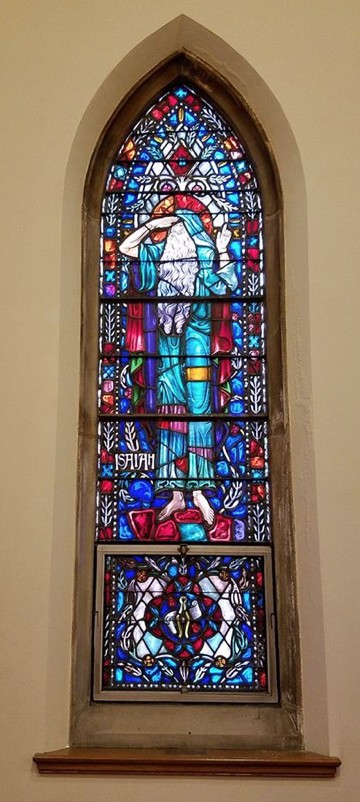Prophecy grounded in history (Luke 2:22-40)
Anna and Simeon’s hope precedes their encounter with Jesus.

To receive these posts by e-mail each Monday, sign up.
For more commentary on this week's readings, see the Reflections on the Lectionary page. For full-text access to all articles, subscribe to the Century.
In the church we toss around this word “prophetic.” We use it as if we all agree on what it means. In my circles we seem to assume something like this: Israel’s prophets spoke the truth to power. They opposed injustice and idolatry. They risked not only their security but their lives confronting dangerous people with their abuses. To speak prophetically means to say uncomfortable things to people who find themselves compromised by greed, exploitation, and militarism. Speaking prophetically may cause division in the church. It can get a pastor fired.
But there’s another common understanding of prophecy, one that relates directly to this week’s readings. Many Christians believe the Hebrew prophets “predicted” Jesus. The portrait of Isaiah in the above church window reflects that assumption: shielding his eyes, the prophet squints into the future for a glimpse of Jesus.
It would be a lovely thought, that such a great prophet foretold Jesus. But this understanding of prophecy causes several problems. First, it treats the prophets as if their words weren’t directed primarily to the people who would first have received them, pushing those people to the edges. Perhaps more dangerous, it assumes that the people of Israel, along with later Jews, somehow failed to understand their own scriptures—that apart from Jesus, Israel’s faith is deficient. Through the centuries, that assumption has proven murderous.
We do better to understand that early Christians, being formed in Israel’s scriptures, naturally looked to them for inspiration in understanding Jesus and his ministry. They did what we all do: they interpreted their present according to their sacred texts.
I credit my Lancaster Theological Seminary colleague Julia O’Brien, a leading interpreter of the prophets, for questioning our assumptions about prophets and opening my mind to other possibilities. In this case we should see what Simeon and Anna have to teach us about prophecy. These two prophets are indeed looking ahead toward Israel’s salvation, but their hope doesn’t come out of the clear blue sky. Yes, Simeon undergoes a profound mystical experience. The Holy Spirit has assured him that he’ll see the messiah in his lifetime. We receive no such lesson regarding Anna. In both cases, however, their hope precedes their encounter with Jesus. Simeon has already anticipated Israel’s comfort, while Anna has been fasting and praying at the temple daily. And let’s not forget the bystanders, “all who were looking for the redemption of Jerusalem.”
The popular mistake is to think of prophecy in terms of the future. Authentic prophecy grounds itself in our heritage. Simeon, Anna, and their hearers could recognize Jesus as their messiah precisely because they already claimed Israel’s hope, an expectation grounded in centuries of God’s faithfulness toward Israel. So it goes with great prophets from Sojourner Truth to Martin Luther King Jr. We see our future because our people have known God’s justice for a long, long time.





